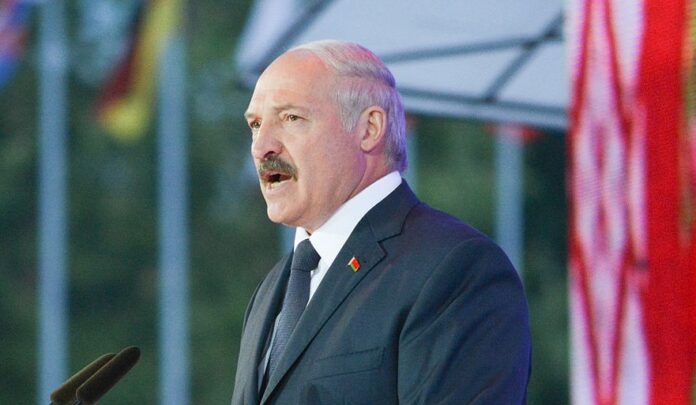
Contro la libertà e la democrazia i governi autoritari di due importanti Paesi portano avanti una dura repressione
Per quanto diversi e lontani siano il popolo bielorusso e quello turco, in questo momento storico essi sono accomunati da una accanita lotta alla democrazia portata avanti da due dittatori, Alexander Lukašenko e Recep Tayyip Erdogan. Le manifestazioni che si tengono nello stato ex sovietico e nella repubblica fondata da Ataturk per la libertà d’opinione e il rispetto dei diritti civili, vengono sistematicamente represse con estrema violenza dalle forze dell’ordine.
La situazione in Bielorussia
In Bielorussia la giornalista e il medico che avevano diffuso le notizie sulla morte di Roman Bondarenko, selvaggiamente picchiato dalla polizia nel novembre 2020, sono stati condannati rispettivamente a 6 mesi e 2 anni di detenzione. L’accusa che viene mossa normalmente contro i dimostranti è di «estremismo», ma le manifestazioni di protesta vanno avanti nei maggiori centri urbani del Paese e Lukašenko, al potere da 27 anni, non intende attenuare la repressione del dissenso. Molti docenti universitari e funzionari statali sono stati licenziati o arrestati per aver appoggiato le proteste.
La situazione in Turchia
Al di là del Mar Nero il panorama non è molto diverso. Erdogan ha deliberato il ritiro della Turchia dalla Convenzione di Istanbul sul contrasto alla violenza contro le donne, il cui primo firmatario nel 2011, era stato – paradossalmente – il governo di Ankara. Dopo il tentativo di colpo di stato del 2016, Erdogan aveva riempito le carceri di amministratori, giuristi, docenti, avvocati e ufficiali accusati di alto tradimento. Poi, progressivamente, ha minato le basi della laicità dello stato trasformando Santa Sofia da monumento di interesse internazionale a moschea. L’8 marzo delle donne turche è stato il più amaro degli ultimi cento anni. Attiviste, giornalisti e esponenti del movimento LGBT sono stati arrestati e minacciati di morte durante la preparazione della manifestazione. Ma ancora prima dell’8 marzo, nella notte fra il primo e il due febbraio la polizia a Istanbul era entrata nel campus dell’università di Boğaziçi, arrestando 159 studenti con l’accusa di «assalto ai valori islamici». Sono i giovani pacifisti disarmati che, grazie a internet e ai contatti con la nutrita comunità turca in Germania, dispongono di strumenti ideologici utili a contrastare l’involuzione teocratica.
Ma il Ministro dell’Interno Süleyman Soylu ha twittato: https://twitter.com/suleymansoylu/status/1355260314904879108 «Quattro pervertiti LGBT hanno mancato di rispetto alla Magnifica Kaaba e sono stati arrestati».
Dictatorships in advance
Against freedom and democracy, the authoritarian governments of two important countries carry out a harsh repression
As different and distant as the Belarusian and Turkish people are, in this historical moment they are united by a fierce struggle for democracy against two dictators, Alexander Lukašenko and Recep Tayyip Erdogan. The demonstrations for freedom of opinion and respect for civil rights, held in the former Soviet state and in the republic founded by Ataturk, are systematically repressed with extreme violence by the police.
The situation in Belarus
In Belarus, the journalist and the doctor who spread the news about the death of Roman Bondarenko, savagely beaten by the police in November 2020, were sentenced to 6 months and 2 years of detention respectively. The accusation that is normally leveled against the demonstrators is of “extremism”. However, protests continue in the major cities of the country and Lukašenko, in power for 27 years, does not intend to mitigate the repression of dissent. Many academics and state officials have been fired or arrested for supporting the protests.
The situation in Turkey
Beyond the Black Sea, the situation is not very different. Erdogan approved Turkey’s with drawal from the Istanbul Convention on combating violence against women, whose first signatory in 2011 was – paradoxically – made by the Ankara government. After the 2016 coup attempt, Erdogan had filled the prisons with administrators, jurists, professors, lawyers, and officers accused of high treason. Then, gradually, it undermined the foundations of the secular state by transforming Hagia Sophia into a mosque. Last 8 March for Turkish women was the bitterest of the last hundred years. Activists, journalists, and members of the LGBT movement were arrested and threatened with death during the preparation for the demonstration. However, even before 8 March, on the night between 1 and 2 February, the police in Istanbul entered the campus of Boğaziçi University, arresting 159 students accusing them of “assaulting Islamic values”. They are the young unarmed pacifists who, thanks to the internet and contacts with the large Turkish community in Germany, have ideological tools that are useful for countering theocratic involution.
Interior Minister Süleyman Soylu tweeted: https://twitter.com/suleymansoylu/status/1355260314904879108 “Four LGBT perverts disrespected the Magnificent Kaaba and were arrested.”







